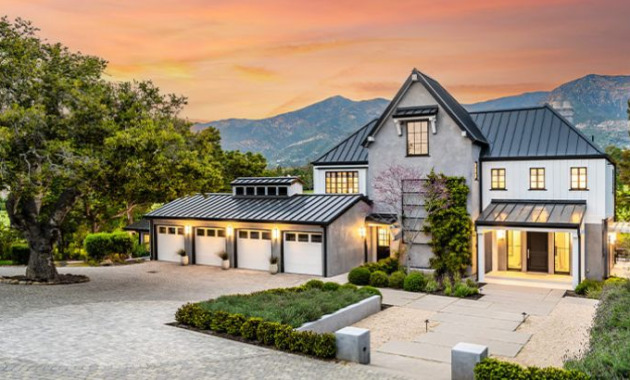The Future of Luxury Real Estate: What’s Next for High-End Homes
Luxury real estate has always been a symbol of status, offering lavish amenities, prime locations, and impeccable design. But as the world evolves, so too does the luxury real estate market. From technological advancements to changing consumer preferences, the next decade promises exciting transformations in the way high-end homes are designed, bought, and sold. In this blog, we’ll explore the future of luxury real estate, examining emerging trends, innovative features, and how this sector is set to evolve in response to shifting demands and technological progress.
1. Technological Integration: The Rise of Smart Homes
One of the most significant shifts in the luxury real estate market is the increasing demand for smart homes. High-end homes of the future will be deeply integrated with advanced technology, offering unparalleled convenience, security, and energy efficiency.
Smart Home Automation
Luxury homes will feature cutting-edge home automation systems that control everything from lighting and climate to security and entertainment. With a single touch or voice command, homeowners will be able to control various aspects of their home, ensuring optimal comfort and efficiency. The integration of smart home technology will go beyond basic features like smart thermostats and lighting—expect to see:
- AI-Powered Systems: Artificial intelligence will power personalized home experiences, learning the habits and preferences of homeowners and adjusting settings accordingly. Whether it’s automatically adjusting the temperature based on weather patterns or ensuring the home is secure when the family is away, AI will enhance the convenience of everyday living.
- Seamless Connectivity: With the Internet of Things (IoT), luxury homes will become fully connected ecosystems. From refrigerators that can track groceries to voice assistants that control the entire home, the seamless integration of various smart devices will transform how residents interact with their living spaces.
- Enhanced Security Features: Homeowners will demand advanced security systems that integrate AI and facial recognition. Smart cameras, biometric access controls, and automated locks will provide an added layer of protection, ensuring peace of mind for residents.
2. Sustainability and Eco-Friendly Features
As climate change concerns intensify, sustainability has become an essential consideration in the construction of luxury homes. Today’s affluent buyers are seeking properties that reflect their commitment to the environment without compromising on comfort and elegance. Luxury real estate developers are responding by integrating eco-friendly features into high-end homes.
Energy-Efficient Homes
Luxury homes in the future will incorporate energy-efficient designs, materials, and technologies that minimize environmental impact while ensuring that the home remains comfortable and stylish. Some features to look out for include:
- Solar Panels and Green Roofing: Solar energy systems are becoming more common in luxury homes, offering homeowners the ability to reduce energy consumption and lower utility costs. Green roofs, which are covered with plants, can help regulate temperature and improve air quality.
- Smart Climate Control: Advanced insulation and climate control systems, powered by AI, will optimize heating, ventilation, and air conditioning (HVAC) usage, cutting down on energy consumption while maintaining an ideal indoor environment.
- Water Conservation Technologies: Luxury homes will feature rainwater harvesting systems, low-flow faucets, and efficient irrigation systems to minimize water wastage, making properties more eco-friendly while reducing the homeowners’ environmental footprint.
Sustainable Building Materials
In response to growing concerns over the environmental impact of construction, developers of luxury properties will increasingly use sustainable materials such as recycled steel, bamboo flooring, and low-VOC paints. These materials offer durability and style while ensuring a minimal impact on the environment.
3. Health and Wellness Focus
The demand for homes that promote health and wellness is increasing, and this trend is expected to continue into the future. High-end buyers are looking for homes that not only offer luxury but also enhance their physical and mental well-being.

Wellness Features in Luxury Homes
High-end homes will increasingly feature wellness-focused designs and amenities to create holistic environments that promote a healthy lifestyle. Some of these features include:
- Indoor Air Quality Systems: Advanced air filtration systems will be integrated into luxury homes to ensure that the air quality remains pristine, eliminating allergens and pollutants for healthier living.
- Home Gyms and Spas: While home gyms are already common in luxury properties, expect to see even more sophisticated wellness facilities, including indoor pools, saunas, and private spa areas. Homeowners will also demand dedicated spaces for yoga, meditation, and fitness routines.
- Biophilic Design: Biophilic design, which seeks to connect people with nature, will become more prominent in luxury homes. This can include large windows with sweeping views of nature, indoor gardens, and the use of natural materials that bring the outdoors inside.
4. Luxury Real Estate Goes Virtual: The Role of Augmented Reality and Virtual Reality
Technology is also transforming the way luxury real estate is marketed and sold. Augmented reality (AR) and virtual reality (VR) are changing how buyers experience homes before making a purchase, especially in a world where international travel and physical showings may not always be feasible.
Virtual Tours and Property Previews
Through VR and AR technology, potential buyers can now take immersive tours of luxury homes without leaving their current location. High-definition, 360-degree virtual tours will allow clients to explore every corner of a property in real-time. They can see the layout, materials, and even check out the views—just as if they were physically present at the property.
- Interactive Design Previews: Buyers will be able to customize homes to their exact specifications through AR, experimenting with different layouts, furnishings, and finishes before construction begins. This level of personalization will be a key selling point in the luxury market.
- Global Reach: With virtual showings, luxury real estate developers and brokers can reach potential buyers from around the world, allowing for a much broader market without the limitations of geography or travel restrictions.
5. The Rise of Experiential Luxury: More Than Just a Home
The future of luxury real estate isn’t just about the property itself—it’s about the entire living experience. Affluent buyers are increasingly seeking homes that offer unique, unforgettable experiences. This has led to the rise of “experiential luxury,” where the home becomes a gateway to an unparalleled lifestyle.
Private Amenities and Customization
Luxury real estate will cater to individuals looking for unique experiences by offering private amenities that enhance the lifestyle of the homeowner. These may include:
- In-House Entertainment: High-end homes may include private cinemas, game rooms, or even fully equipped concert halls for hosting private events.
- Exclusive Locations: Luxury homes will be situated in increasingly rare and exclusive locations, such as private islands, mountaintop retreats, or historic city centers. These properties will offer buyers unmatched privacy and access to stunning natural surroundings.
Additionally, developers will offer highly customizable features, allowing buyers to design their homes to meet specific needs and desires. Whether it’s a personal art gallery or a rooftop garden, luxury real estate will focus on delivering a truly bespoke living experience.
6. Changing Demographics: Younger Buyers and Their Preferences
As millennials and Gen Z enter the luxury market, there will be a shift in what constitutes luxury. Younger buyers are more interested in experiences, sustainability, and technology than traditional displays of wealth.
- Emphasis on Technology and Convenience: These younger buyers will prioritize tech-driven homes with advanced automation, seamless connectivity, and efficient use of space.
- Sustainability and Ethical Investments: Younger luxury buyers will place a premium on sustainability and environmentally responsible practices in both the construction and operation of luxury homes.
- Urban Luxury: Unlike older generations that preferred expansive estates in remote locations, younger buyers may lean towards luxury properties in vibrant urban centers, with proximity to cultural events, entertainment, and workspaces.
Conclusion
The future of luxury real estate is evolving rapidly, driven by advancements in technology, sustainability concerns, and shifting consumer preferences. High-end homes in the coming years will not only offer luxurious aesthetics and prime locations but will also incorporate cutting-edge technology, sustainable materials, and wellness-focused features. As the market adapts to the desires of younger, more eco-conscious buyers, we can expect a shift toward smarter, more sustainable, and experiential living spaces. For luxury real estate developers and investors, staying ahead of these trends will be key to capturing the attention of affluent buyers in the next decade. The future of luxury real estate promises to be more innovative, sustainable, and tailored to the lifestyles of the next generation of homeowners.




